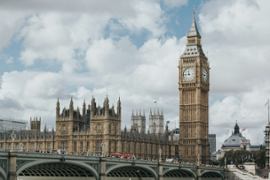Summary
- The Observer believes that a tax increase on gambling may be forthcoming in the UK.
- Chancellor of the Exchequer Rachel Reeves is facing mounting challenges due to an increasingly unwieldy budget deficit.
- The UK's gambling tax might still have some potential to align more closely with that of other European markets.
An increase in the UK's current gambling tax levy may be on the horizon, according to Catherine Neilan, Whitehall Editor for The Observer. Neilan references sources and notes the challenging situation confronting Chancellor of the Exchequer, Rachel Reeves. She highlights that Reeves faces a significant budget deficit, which may necessitate making the tough decision of implementing unpopular tax measures.
A gambling tax increase is not without its merits
Increasing taxes broadly can be politically challenging, so Reeves may focus on addressing the deficit by targeting unpopular sectors like gambling, implementing a bank tax, and increasing taxes on the wealthy. Analysts, such as the Institute for Public Policy Research, suggest that raising the tax on online betting could generate £3 billion, but this would require adjustments to the current tax rates. Presently, online casinos in the UK are taxed at 21%, but Reeves might consider aligning these rates with those in other European countries where taxes are higher. The Netherlands serves as a prime example of a profitable market with high tax rates; operators there are required to pay a 40% tax. Reeves may aim to adopt a similar approach. The IPPR recommends a 41% tax rate for the gambling industry. This isn't the first time gambling taxes have been discussed in the UK. The idea emerged in late 2024 and resurfaced in early 2025, although previous initiatives stalled. Now, with dwindling options to fund the budget, Reeves might revisit this strategy. Critics argue that the proposed tax hike could reduce the industry’s competitiveness and lead to job losses, while offshore operators could benefit in an increasingly challenging environment for licensed operators.





























